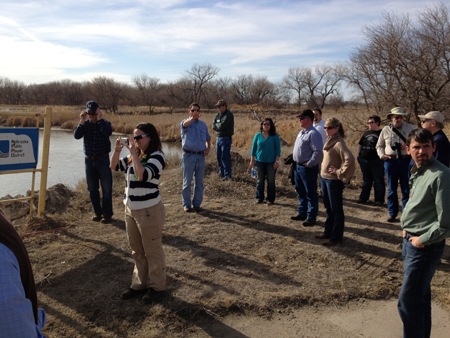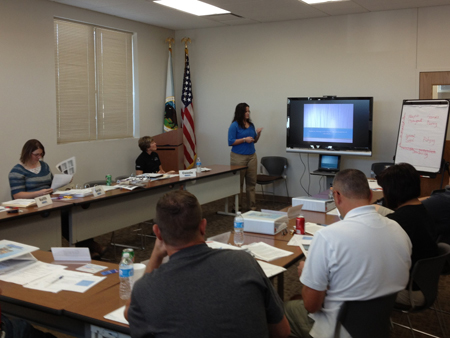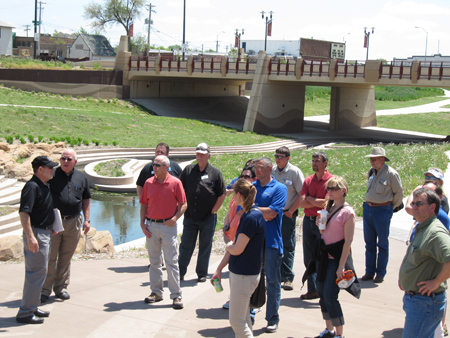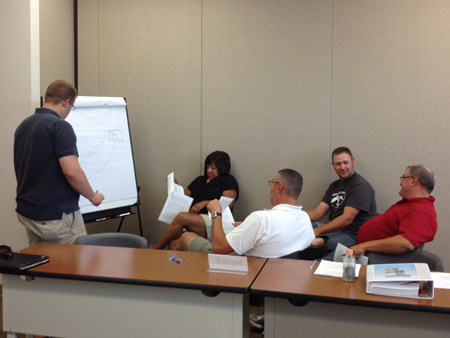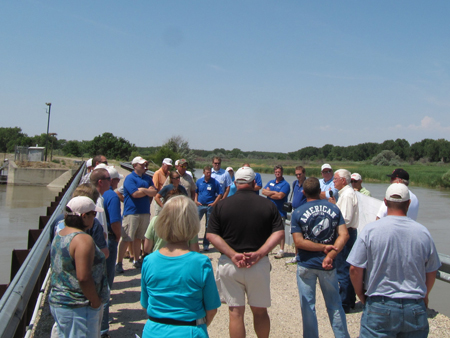Human Dimensions Specialization in
Natural Resource Sciences Graduate Program
Available to both MS and PhD candidates.
The Human Dimensions specialization seeks to improve the stewardship of ecosystems and natural resources by understanding and affecting people’s thought and behavior toward natural and managed environments.
Environmental managers and researchers increasingly need to understand the human element—human behaviors, attitudes and needs—and incorporate these into natural resources planning. They also may be called upon to facilitate collaboration between groups, help resolve conflicts, create policies, serve as educators, and advocate for environmental issues.
This specialization offers both natural resources and social science courses to provide a well-rounded curriculum focused on human-environment interactions.
Participating faculty in other units, such as Agricultural Economics, Anthropology and Geography, Psychology, Law, and Community and Regional Planning offer a range of natural resource and social science study, allowing students to design individualized programs.
Educational goals and objectives:
- Provide students a learning environment to promote an understanding of the human dimensions of natural resources, including emphases in environmental perceptions and behavior, planning, justice and law, evaluation, and economics.
- Formally recognize students who have attained an advanced knowledge of the human dimensions field as part of their graduate program.
- Support interactions and cooperation among the community of scientists and students working in the field of natural resources management.
Faculty Point-of-Contact
If you are interested in the Human Dimensions graduate specialization, please feel free to contact the following SNR faculty member:
Program of Study for the Master of Science in Natural Resource Sciences - Human Dimensions Specialization
| Course Area2 | |
|---|---|
HD Specialization Required Course NRES 829 Human Dimensions of Natural Resource Management | Required Courses and Credits1 |
| 1 course | |
| Total Require HD Courses | 3 credits |
| Quantitative/Qualitative Methods of Research & Analysis | Minimum Quantitative/Qualitative Methods of Research & Analysis |
|
Quantitative Data Analysis | 1 course |
| Total Quantitative/Qualitative Methods of Research & Analysis | 3 credits |
| Social Science Theoretical & Applied Perspectives | Minimum Social Science Theoretical & Applied Perspectives |
|
Anthropology | 3 courses |
| Total Social Science Theoretical & Applied Perspectives | 9 credits |
| Program Electives | Minimum Program Electives |
|
Socio-Ecological Systems | 3 courses |
| Total Program Electives | 9 credits |
| Total Methods, Social Science, and Program Electives | 24 credits |
| Research & Thesis/Project credits | Minimum Thesis |
NRES 899 Masters Thesis | |
| Total Thesis/Project credits | 6 credits |
| Total Credits from coursework and research credits | 30 credits |
1Students must be sure to comply with UNL Graduate School requirements regarding the number of total credits and normal coursework required to be at or above level 900.
2Specific courses are not listed. Please work with your advisor and committee to identify specific courses to meet your requirements.
Program of Study for the Doctorate of Philosophy in Natural Resource Sciences - Human Dimensions Specialization
| Course Area3 | |
|---|---|
HD Specialization Required Course NRES 829 Human Dimensions of Natural Resource Management | Required Courses and Credits1 |
| 1 course | |
| Total Require HD Courses | 3 credits |
| Quantitative/Qualitative Methods of Research & Analysis | Minimum Quantitative/Qualitative Methods of Research & Analysis |
|
Quantitative Data Analysis | 3 courses |
| Total Quantitative/Qualitative Methods of Research & Analysis | 9 credits |
| Social Science Theoretical & Applied Perspectives | Minimum Social Science Theoretical & Applied Perspectives |
|
Anthropology | 4 courses |
| Total Social Science Theoretical & Applied Perspectives | 12 credits |
| Program Electives | Minimum Program Electives |
|
Socio-Ecological Systems | 4 courses |
| Total Program Electives | 12 credits |
| Total Methods, Social Science, and Program Electives | 36 credits |
| Research & Dissertation Credits | Minimum Research & Dissertation |
NRES 999 Doctoral Dissertation | |
| Total Research & Dissertation Credits | 24 credits |
| Total Credits from coursework and research credits | 60 credits |
| Credits from previously completed Masters Program2 | 30 credits |
| Total Credits | 90 credits |
1Students must be sure to comply with UNL Graduate School requirements regarding the number of total credits and normal coursework required to be at or above level 900.
2Students are not required to have completed a Master’s degree prior to entering the PhD program. They are required to complete 90 hours of program credits to earn a PhD, either through additional coursework or research and dissertation credits with doctoral committee approval.
3Specific courses are not listed. Please work with your advisor and committee to identify specific courses to meet your requirements.
The importance of understanding human behavior in the conservation, management and restoration of natural resources, ecosystems and the environment has led to a greater emphasis on interdisciplinary and integrated research. For this reason, opportunities in business, government and non-governmental organizations have increased at all levels.
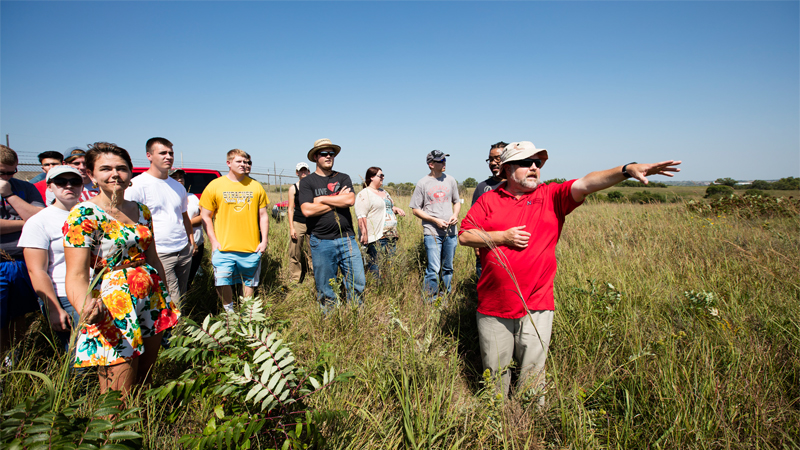
Selected Dissertations & Theses
A Better Great Plain: Bridging the Implementation Gap for a Better Future - David Sandahl
- Thesis Defense
- 10/23/2025
Nebraska Water Leaders Academy
Images courtesy of Mark Burbach
